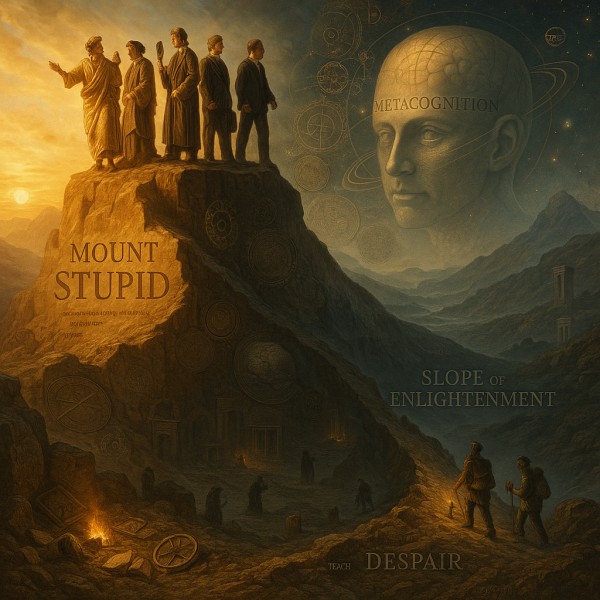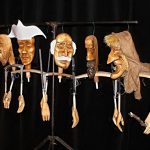The Two Blades of Reason: Inductive vs. Deductive Power in Strategic Analysis
October 7, 2025
The Core Architecture of Thought
Data is cheap. Judgment is rare. In a world drowning in information and starving for clarity, the ability to reason correctly becomes the sharpest competitive weapon. At the centre of that weapon lie two distinct blades: inductive reasoning (bottom-up, pattern from observation) and deductive reasoning (top-down, principle to case). Used in isolation, they limp. Used together, they carve through noise like a scalpel through silk.
Francis Bacon, the father of empiricism, built his method on induction, insisting that patterns should emerge from rigorously tested evidence, rather than from lazy assumptions. Aristotle, centuries earlier, systematised deduction, showing how structured logic drives certainty. Karl Popper later fired a shot against intellectual complacency with the concept of falsifiability, demanding that ideas must risk disproof to be meaningful. These are not academic toys; they are the gears of real decision-making.
Daniel Kahneman added a modern twist with his “System 1 vs. System 2” distinction: instinctive vs. deliberate thought. Most investors live in System 1—fast, emotional, overconfident. The disciplined few toggle between the two, letting inductive observation reveal the field, and deductive structure define the strike.
Lies, Damned Lies, and the Cult of Data
Mark Twain nailed it: “There are lies, damned lies, and statistics.” In today’s environment, that should be updated to “and dashboards.” Numbers without context seduce the lazy. Algorithms without scrutiny give false comfort. As Montaigne warned, “Nothing is so firmly believed as that which we least know.” Erasmus added the cutting line: “In the land of the blind, the one-eyed man is king.” And in financial markets, the one-eyed man is usually selling subscriptions.
Critical thinking is not optional. It is the firewall against weaponised data. A discerning mind interrogates every figure—methodology, incentives, timing, omission. It treats even “official” numbers as suspect until proven otherwise. Herman Hesse captured this transformation beautifully: “Everything becomes a little different as soon as it is spoken out loud.” Once numbers are voiced, they gain power. The wise don’t bow to that power—they dissect it.
Finance: Where Induction Meets Deduction at the Kill Point
Nowhere does the fusion of these two methods become more lethal than in markets. Warren Buffett’s entire philosophy is a practical demonstration:
- Inductive: Observe the cycles of panic and greed. Identify moments when fear undervalues assets.
- Deductive: Apply enduring principles—intrinsic value, economic moats—to filter signal from noise.
In 2008, inductive thinkers saw credit spreads explode, VIX detonate, and breadth collapse. Deductive thinkers applied fundamental principles to identify real value amid wreckage. Those who married both bought assets, the herd was vomiting out at 3 a.m., and sat through the noise until the narrative flipped.
Buffett doesn’t chant “buy the dip.” He studies the battlefield inductively, selects targets deductively, then strikes with absolute conviction. This is why he wins while the herd livestreams their own panic.
The Trap of the Half-Thinker
Using induction without deduction is like finding a pattern in the clouds and calling it a map. It leads to correlations mistaken for causation, momentum mistaken for insight. It’s how bubbles are born. Using deduction without induction is worse: it breeds ivory-tower rigidity, the kind that ignores reality until it collapses the model. The 1998 LTCM disaster was textbook deductive hubris—mathematical elegance meeting the messy unpredictability of actual humans.
The strongest minds flow seamlessly between both modes. They observe like field generals and reason like philosophers. They are rare because this requires discipline, patience, and the willingness to be wrong—three things the herd cannot tolerate.
Mastering Market Psychology Through Reason
Markets are not mathematical systems. They are theatres of human emotion. Fear, greed, and hope write the scripts; biases direct the actors. Kahneman and Tversky mapped this terrain decades ago: heuristics, cognitive illusions, and emotional reflexes drive much of what passes for “strategy.” Recognising these psychological undercurrents through inductive observation provides traders with early warning signs, including crowd overconfidence, exhaustion, and capitulation.
Deductive logic then turns these signals into structured action. When the crowd chases, deductive thinkers calculate the margin of safety. When fear spikes, they measure fundamentals. They don’t outshout the herd—they step aside and let it trample itself, then walk through the wreckage with a shopping list.
Induction as the Sensor Array, Deduction as the Sword
Think of inductive reasoning as radar, scanning for patterns across chaos. Think of deduction as the targeting system, locking on and striking with precision. Traders who rely only on intuition (induction) become gamblers. Those who rely only on rigid principles (deduction) become bureaucrats. Those who fuse both become predators.
B.F. Skinner showed how the environment shapes behaviour; Aaron Beck showed how thought reshapes response. Induction reveals external sentiment; deduction recalibrates internal positioning. Together, they let you anticipate the crowd before the crowd knows what it’s doing.
Case Study: The COVID Crash
March 2020 was panic incarnate. Inductive thinkers spotted the VIX at 80, credit spreads blowing out, liquidity evaporating. Deductive thinkers applied valuation discipline and long-term frameworks. While retail capitulated, these operators accumulated. Within a year, indices hit new highs. The herd wailed about “unprecedented times.” The disciplined cashed unprecedented checks.
Contrarian Weaponization
Warren Buffett’s maxim—“Be fearful when others are greedy, and greedy when others are fearful”—isn’t a slogan. It’s a tactical fusion of observation and principle. Induction reads the room; deduction defines the play. Daniel Kahneman explained why most investors fail to do this: they rely on instinctive System 1 thinking under pressure. True mastery is System 2 discipline guiding System 1 intuition—not silencing it, but using it like a trained animal instead of a wild one.
Conclusion: The Razor’s Edge of Mastery
The market is not a church, though the herd treats it like one. They gather in noisy congregations, chanting the latest narratives, bowing to influencers who mistake correlation for revelation. Every cycle, new prophets emerge with shiny models and recycled platitudes. Every cycle, the congregation tithes its capital at the altar of stupidity. Then, when the gods of liquidity withdraw their blessing, the wailing begins.
Inductive and deductive reasoning are the twin blades that slice through this theatre of the absurd. Induction detects the tremors in crowd behaviour; deduction determines whether those tremors signal opportunity or collapse. One without the other is a toy. Together, they’re a weapon fit for an empire.
History’s real operators—Bacon, Buffett, Cicero, Machiavelli—were not mystics. They were tacticians who understood the herd’s predictable rhythms. They observed patiently, reasoned ruthlessly, then struck cleanly. Meanwhile, the mob oscillated between hysteria and euphoria like a drunk stumbling between lampposts, each crash mistaken for a revelation.
The market rewards clarity, not noise. It crowns those who can dissect fear before acting, not those who join the chorus after the first crack in the facade. Mastering both inductive and deductive reasoning is not intellectual vanity; it’s the price of entry to the strategic class.
And let’s be honest: the herd isn’t going anywhere. It will keep reinventing its panic, its slogans, its “new paradigms,” like a bad playwright rewriting Act I forever. Your role is not to edit their script. It’s to sit above the stage, watch the play unfold, and know exactly when to step down, collect the spoils, and exit while they’re still arguing over who forgot their lines.
In that moment, you’re not simply an investor. You are the conductor of chaos, the quiet architect of order amid madness. That is the true apex of inductive and deductive mastery—not applause, not popularity, but control.
And while the herd drowns in their encore of errors, you’ll be elsewhere—calculating, positioning, already three acts ahead.
Mental Treats That Encourage Reflection















